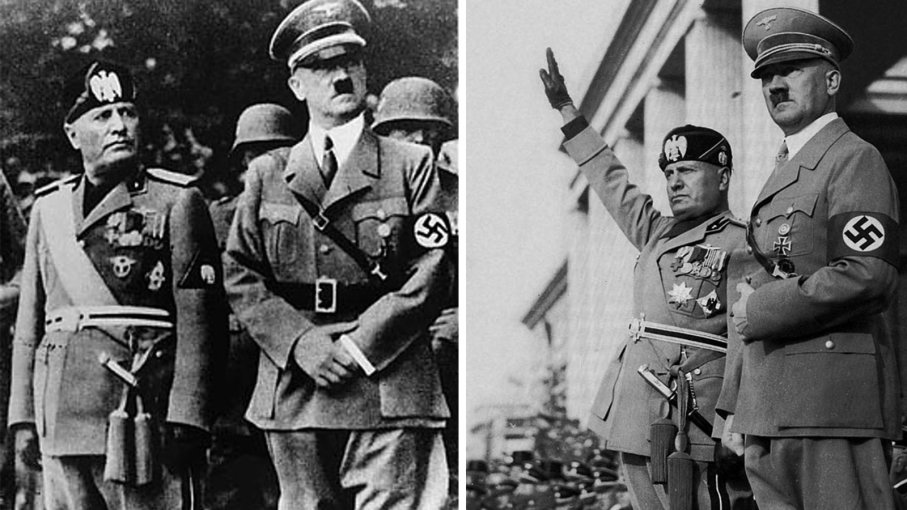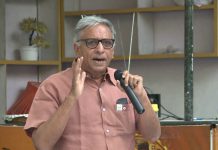MD IRSHAD AYUB
The term Fascism refers to “the aggressive, radical and ultra-nationalist ideology as well as right wing political system, which believes in the ideas of totalitarian, authoritarianism, centralised and corporate state.” The word fascism comes from fascio, the Italian word for bundle, which in this case represents bundles of people. Its origins go back to Ancient Rome, when the fasces were a bundle of wood with an ax head, carried by leaders. It could well be characterized by dictatorial power, forcible suppression of opposition, subjugation of minority groups and strong regimentation of society and of the economy, which came to prominence in early 20th-century Europe. The fascist regime had come to power in many countries of the world especially Germany under Adolf Hitler (fascism) and Italy under Benito Mussolini (Nazism) during interwar period (1919-1939). These two terms, Fascism and Nazism are commonly referred to a fascist regime.
It is very important to understand the difference between nationalism and patriotism before discussing the fascist ideology. Let me say the quote of Sydney Harris to understand the difference between them. He was a syndicated columnist from U.S., who died in 1986. “The difference between patriotism and nationalism is that the patriot is proud of his country for what it does, and the nationalist is proud of his country no matter what it does,” Harris said. He further insisted that “The first attitude creates a feeling of responsibility, but the second a feeling of blind arrogance that leads to war.”
Fascism was born in a Milanese meeting room on 23rd March, 1919. Benito Mussolini convened the first meeting of his Fascist Party, with around one hundred followers. Within 25 years the ideology had wrought the worst suffering the human race had ever seen or even been able to imagine. The father of fascism, Benito Mussolini, and his seminal work, The Doctrine of Fascism, published in 1935. Mussolini identifies five principles as central to fascist ideology. Mussolini’s five principles — the primacy of the state’s interests over an individual’s rights and the nation, contempt for democracy, investment in a national religion, and a belief in the nation-state as a moral agent — converge neatly in the discourse of the ‘anti-national’. The Microphone that amplifies this discourse is the sedition law.
Each of us must decide in these difficult times whether we intend to be patriots or nationalists. In doing so, we should remember the words of Charles de Gaulle, the former president of France. “Patriotism is when love of your own people comes first,” de Gaulle said. “Nationalism, when hate for people other than your own comes first.”

Violence is a crucial element of fascism. Fascism is intensely supportive of violence to achieve political means and stay in power. Fascism is intended to craft a society to the ultimate ambitions of a single ruling party. It is a phenomenon of a political right.
Political scientist Robert Paxton defined fascism in his seminal study in 2004, The Anatomy of Fascism, as “a form of political behaviour marked by obsessive preoccupation with community decline, humiliation or victimhood” and in which a mass-based party of committed nationalist militants “abandons democratic liberties and pursues with redemptive violence and without ethical or legal restraints goals of internal cleansing and external expansion”.
“Fascism”, wrote the great Marxist intellectual Antonio Gramsci, “has presented itself as the anti-party; has opened its gates to all applicants; has with its promise of impunity enabled a formless multitude to cover over the savage outpourings of passions, hatreds and desires with a varnish of vague and nebulous political ideals. Fascism has thus become a question of social mores: it has become identified with the barbaric and anti-social psychology of certain strata of the Italian people which have not yet been modified by a new tradition, by education, by living together in a well-ordered and well-administered state”.
In her book, Madeleine Albright ‘Fascism A Warning,’ said that it “is about attacking the press, smearing political rivals, demanding total loyalty from party members and threatening anyone who stood in their way”. There are several books that explain the nature and character of fascism in greater depth— Hannah Arendt’s classic: The Origins of Totalitarianism, Alan Bullock’s Hitler and Stalin: Parallel Lives, Jason Stanleya’s HOW FASCISM WORKS: The Politics of Us and Them, Robert O. Paxton’s The Anatomy of Fascism as well as Elias Canetti’s Crowds and Power. These books are profound informative and insightful.
If we are to prevent a return of fascism to what W.H. Auden called “That low, dishonest decade,” we must be ready to face the challenges presented by the extremists, the bullies, the thugs and bruisers whose predecessors wrought so much damage to our species. This might also, alas, include accommodating and ameliorating the fears, however unfounded, that the masses feel. Fear of the other, and of progress or change, is a normal human reaction. It is through a close reading of the history of our nadir, that we can prevent a catastrophic return.
Fascism is the antithesis of democracy. Because of the fact that Democracy signifies a freely expressed will of the people and their power through suffrage to determine their own political, economic, social and cultural systems and also their full participation in all aspects of collective life.

















